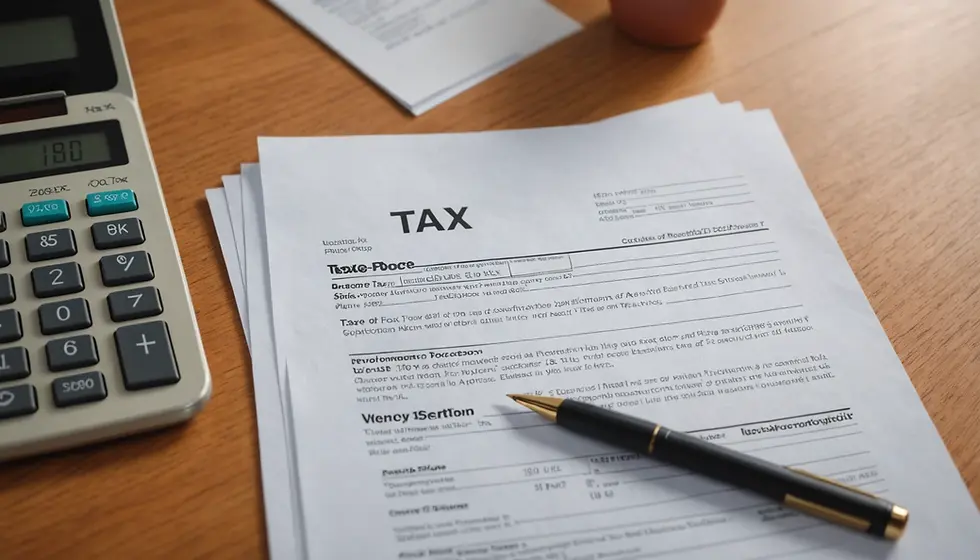Can Assessing Officer Re-open the Past Tax Cases on arbitrary basis ?
- Sandeep Singh
- Jan 2
- 3 min read
Taxpayers often find themselves anxious about income tax assessments. This anxiety grows when the Income Tax Department revisits past tax cases, raising concerns about fairness and legality. A key case highlighting this issue is the Bombay High Court ruling in Sesa Sterlite Ltd. Vs ACIT. This ruling emphasizes the balance between the authority of tax officers and the safeguards designed to protect taxpayers.
In this blog post, we will explore the implications of this ruling, the relevant legal frameworks, and its impact on taxpayer rights.
Understanding the Case Background
In the Sesa Sterlite Ltd. Vs ACIT ruling, attention was focused on Section 10B deductions for the assessment year 2009-10. Initially, these deductions were denied during a normal assessment. After an appeal, the Income Tax Appellate Tribunal (ITAT) later allowed the deduction based on the merits of the case. However, the Income Tax Department sought to reassess the case, citing new survey findings.
The core legal question was whether the department could reassess a matter already under appeal. The High Court found the department's actions impermissible under the third proviso to Section 147. This section prohibits reassessment when matters are already reviewed. The law aims to prevent conflicting outcomes, ensuring that once a case is resolved in appeal, it cannot be arbitrarily reopened by tax authorities.
In simpler terms, if a taxpayer successfully appeals a decision, they should not have to face the same issue again without a valid reason.
The Role of Procedural Safeguards
The third proviso to Section 147 is vital for maintaining balance between the Income Tax Department's authority and taxpayers' rights.
Before its 2021 amendment, this proviso made it clear that reassessment could not occur for issues already being appealed. By embedding these procedural safeguards, the law protects the tax system's integrity. It also boosts confidence among taxpayers, who may feel vulnerable to unexpected assessments.
When the Income Tax Department decides to reopen past assessments, especially after significant time has passed, it can feel like retaliation for taxpayers. This unpredictability leads to anxiety among taxpayers, making them question the validity of earlier decisions.
Credible Evidence and Fairness in Reassessments
The requirement for credible evidence is crucial in reassessment processes. The Bombay High Court highlighted this in the Sesa Sterlite case. Any attempt to reopen assessments must be backed by substantial and valid evidence. This principle is not only crucial for legal compliance but also essential for fair and transparent tax administration.
Taxpayers deserve assurance that tax authorities will act based on solid evidence and established norms. Without credible evidence, arbitrary actions may surface, damaging the trust between taxpayers and the tax administration.
For context, a survey by the Taxpayer Advocate Service indicated that about 60% of taxpayers feel uncertain about their rights during tax disputes. This highlights the importance of reliable evidence in maintaining taxpayer confidence.
The Impact of Legal Anomalies
Arbitrary decisions by tax authorities create significant legal anomalies and repercussions for taxpayers. If the department can freely reopen closed assessments, it opens the possibility of exploiting tax laws. This instability can deter taxpayers from compliance, as they fear that settled matters may be reopened without justification.
The unexpected ruling in the Sesa Sterlite case highlights the essential need for consistency and adherence to established legal processes in tax reassessments. In a recent report, 45% of businesses expressed concerns about unpredictable tax audits, illustrating the broader implications of such arbitrary actions.
Broadening the Discussion: Taxpayer Rights and Department Authority
The balance between taxpayer rights and the Income Tax Department's authority is critical for the tax system's smooth functioning. While the department must ensure compliance and collect revenue, it must also respect taxpayers' legal rights.
In practice, tax authorities should have the capacity to reassess and scrutinize past cases. However, they must do so in a transparent, fair manner based on credible evidence.
This balance is crucial for building trust among taxpayers. When taxpayers feel secure and assured of their rights, they are more likely to cooperate with the tax system.
Final Thoughts
The Bombay High Court ruling in Sesa Sterlite Ltd. Vs ACIT serves as a vital reference point for understanding the limitations of tax officers when reopening past tax cases. The court's reaffirmation of the need for procedural safeguards, credible evidence, and legal consistency protects taxpayers from arbitrary actions by the Income Tax Department.
As taxpayers navigate the complexities of tax assessments and possible reassessments, grasping these legal frameworks empowers them to advocate for their rights and promote fair treatment within the tax system.
The key takeaway is clear: while tax authorities need to enforce compliance, they must also prioritize taxpayer rights. Ensuring procedural fairness and accountability is crucial for maintaining the tax system's integrity, fostering a cooperative relationship between tax collectors and taxpayers.




